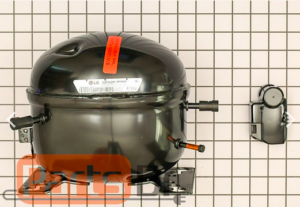As an experienced appliance repairman, I’ve seen my fair share of broken refrigerators, freezers, and other cooling units. While there are numerous reasons why these appliances malfunction, one recurring culprit that I’ve encountered far too often is the linear compressor. Despite their promise of efficiency and quiet operation, linear compressors often lead to more headaches than solutions for homeowners. In this article, I’ll delve into the reasons why linear compressors are so bad and why people should avoid them whenever possible.
First and foremost, let’s discuss what a linear compressor actually is. Traditional compressors, also known as rotary compressors, use a piston-driven mechanism to compress refrigerant gases, which in turn cool the interior of the appliance. On the other hand, linear compressors utilize an electromagnetic system to create linear motion, theoretically resulting in smoother operation and reduced noise levels.However, in practice, linear compressors have proven to be far from the panacea they were touted to be. One of the most significant issues with linear compressors is their reliability—or lack thereof. Unlike rotary compressors, which have been tried and tested over decades, linear compressors are relatively new to the scene. As a result, they often suffer from design flaws and manufacturing defects that can lead to premature failure.
When a linear compressor fails, it’s not just a minor inconvenience—it can result in the complete breakdown of the appliance. Unlike traditional compressors, which may still limp along even when damaged, linear compressors tend to either work perfectly or fail catastrophically. This means that when a linear compressor goes kaput, you’re left with a non-functioning refrigerator or freezer until it’s repaired or replaced—a costly and frustrating ordeal for homeowners.
Another major downside of linear compressors is their repairability—or lack thereof. Unlike rotary compressors, which can often be repaired relatively easily and affordably, linear compressors are notoriously difficult and expensive to fix. In many cases, repairing a faulty linear compressor involves replacing the entire unit, which can cost hundreds or even thousands of dollars in parts and labor.
Furthermore, because linear compressors are still relatively uncommon, finding replacement parts can be a challenge. This means that even if a repair technician is willing and able to fix your linear compressor, they may struggle to source the necessary components, further delaying the repair process and driving up costs.
But perhaps the most insidious problem with linear compressors is their environmental impact. While linear compressors are often touted as being more energy-efficient than their rotary counterparts, the reality is far more nuanced. Because linear compressors are so prone to failure, they often require more frequent repairs or replacements, resulting in a higher overall carbon footprint.
Additionally, the manufacturing process for linear compressors is often more resource-intensive than for traditional compressors, further exacerbating their environmental impact. This means that even if a linear compressor is slightly more energy-efficient during operation, it may still have a greater environmental footprint overall due to its shorter lifespan and higher repair/replacement frequency.
So, what can homeowners do to avoid the pitfalls of linear compressors? The simplest solution is to opt for appliances equipped with traditional rotary compressors whenever possible. While these compressors may be slightly louder than their linear counterparts, they have a proven track record of reliability and repairability that simply can’t be matched.
If you already own appliances with linear compressors, there are still steps you can take to mitigate their risks. Regular maintenance, such as cleaning the condenser coils and ensuring proper ventilation, can help prolong the lifespan of your appliance and reduce the likelihood of compressor failure. Additionally, investing in an extended warranty or service plan can provide peace of mind and financial protection in the event of a compressor-related breakdown.
In conclusion, while linear compressors may sound like a dream come true on paper, the reality is far from rosy. From their poor reliability and repairability to their questionable environmental impact, linear compressors pose numerous risks and drawbacks for homeowners. By opting for appliances equipped with traditional rotary compressors and taking proactive steps to maintain and protect your existing appliances, you can avoid the headaches and hassles associated with linear compressors and enjoy reliable, trouble-free cooling for years to come.
If you’re experiencing problems with your refrigerator’s linear compressor, please visit appliance repair mt pleasant or call us today at 843 568 5936. We’ll be glad to trouble shoot any issues you have.
If you’ve already made the mistake of buying a refrigerator with a linear compressor and had the problems that many other consumers have with them. There are currently several class action suits against LG and other companies that use this type of compressor. By doing a Google search you can access the latest information on these actions.

Leave a Reply